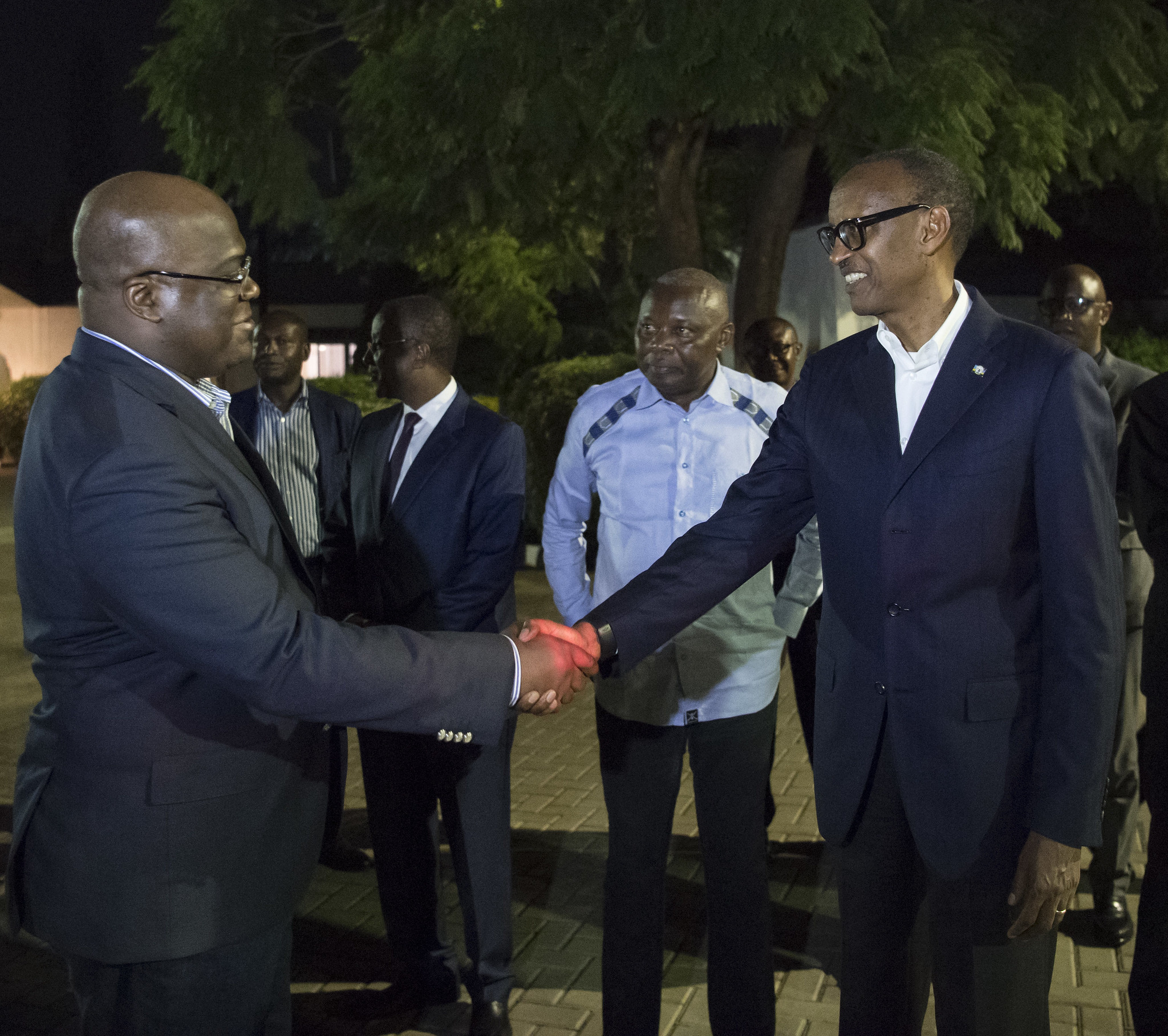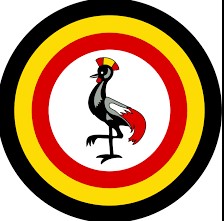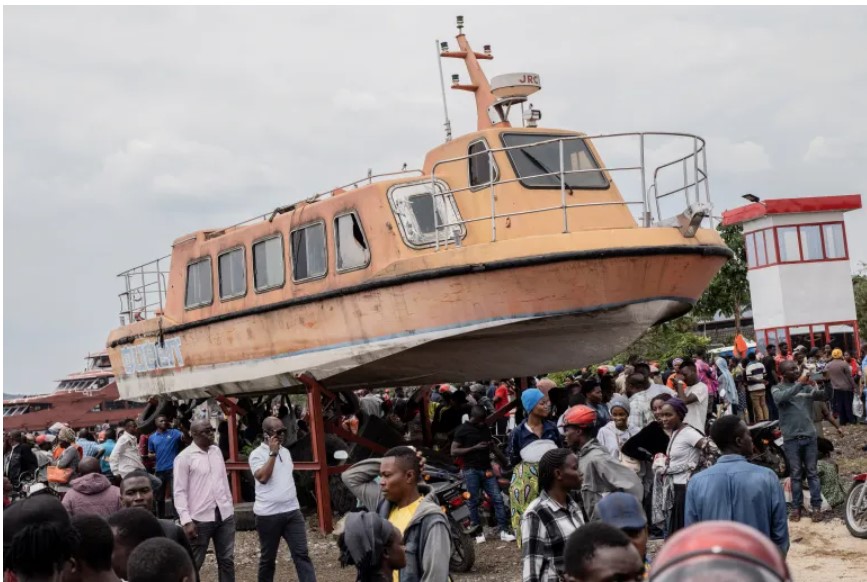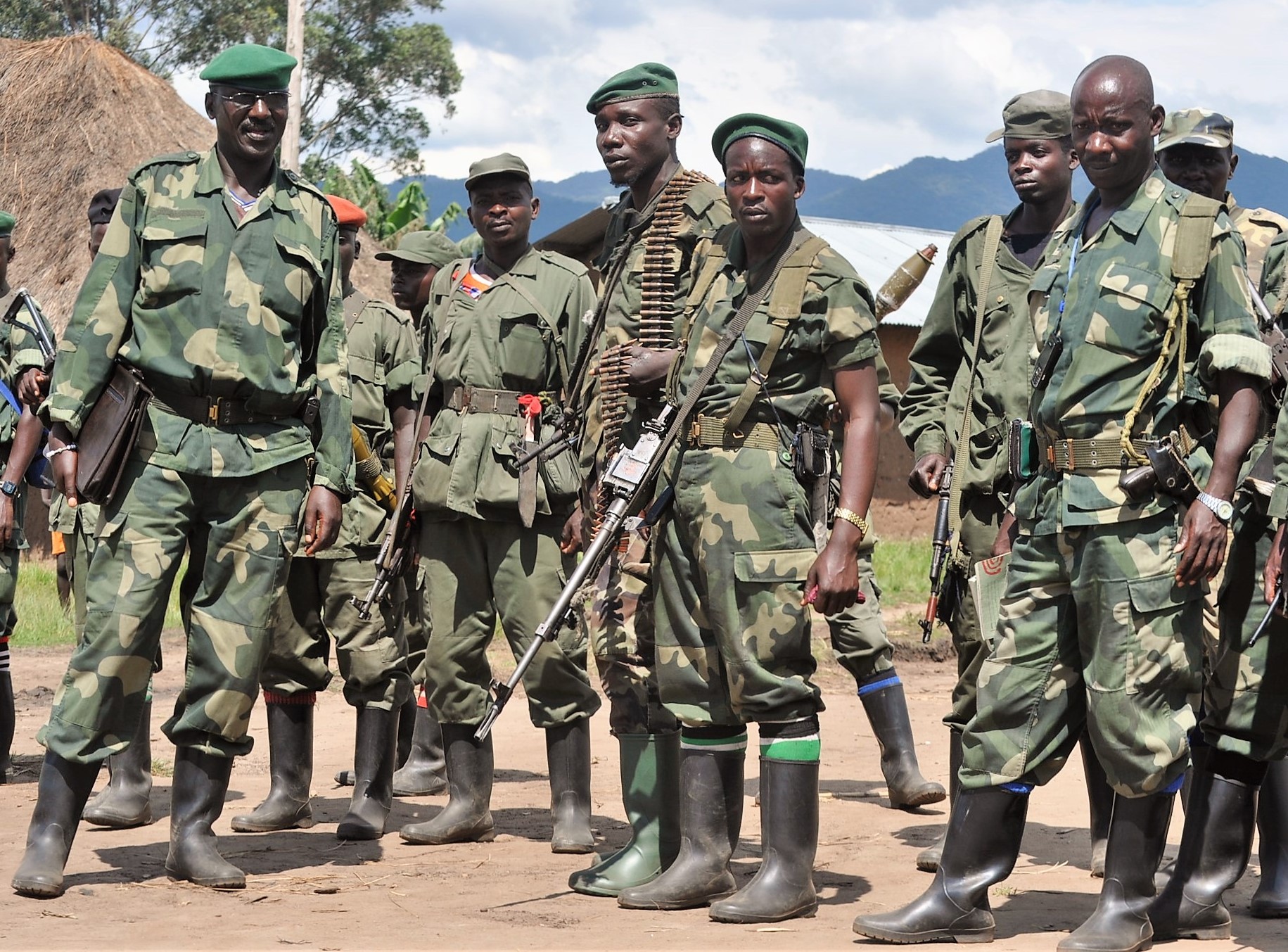Regional
Can DRC, Rwanda live peacefully?

Congolese President Felix Tshisekedi (left) and his Rwandan Counterpart Paul Kagame (Right) in March 2019.
In March 2019, when the President of the Democratic Republic of Congo, Félix Tshisekedi, visited Rwanda to attend the Africa CEO forum, he said that as neighboring countries, Rwanda and DRC are better off working closely.
“Our countries will be
neighbors forever. As leaders, we are here temporarily but our countries will
always be there. Conflict with each other is a waste of time, time that could
be used to develop our countries,” he said.
Rwanda's relations with DRC
has not got any better in the past, but the presence of Tshisekedi at the
Africa CEO forum, on a personal invitation from Rwandan President Paul Kagame,
was a good thing.
On armed militia groups that
often threatened the security of the two countries, Tshisekedi said that they
do not stand for a cause and should be neutralized through demobilization and
reintegration programmes.
Tshisekedi’s statement gave
hopes that DRC and Rwanda can be at peace with each other.
Eastern DRC, mainly South and
North Kivu provinces, share common borders with Rwanda. For close to three
decades, this DRC region suffered long-standing armed conflicts instigated by
many local and foreign armed groups, now estimated to be more than 260.
The insecurity they cause has
had far-reaching consequences, with spill-over effects exported to neighboring
countries, especially Rwanda.
In October 2022, Kinshasa
expelled Rwanda’s envoy. In May that year, Kinshasa suspended Rwandan carrier
RwandAir from its airspace claiming that Rwanda supports the rebel group M23,
allegations Rwanda has long dismissed.
During his electoral campaign
for a second term, President Tshisekedi stepped out of the expected diplomatic
norm, and not only blamed Rwanda for his own failures but uttered abuses
against President Kagame.
On December 18, 2023,
Tshisekedi bragged that once re-elected, he was going to convene parliament to
authorize him to declare war on Rwanda. By attacking Rwanda, Tshisekedi’s wish
could only turn out to be a disastrous and suicidal adventure.
What Tshisekedi said was
neither surprising nor new. Ever since the DRC government started working and
supporting the genocidal militia, FDLR, formed by remnants of the perpetrators
of the 1994 Genocide against the Tutsi, the objective has been to attack Rwanda
so that they can continue the genocide against the Tutsi which they never
completed.
The UN, in December 2010,
sanctioned the genocidal militia. It documented evidence showing that FDLR
actively conducted child recruitment. A HRW report identified at least 83
Congolese children under the age of 18, some as young as 14, who had been
forcibly recruited by the FDLR, in Masisi territory, killing six civilians,
raping two women, and abducting at least 48 people.
Kinshasa has shielded and
supported the FDLR with the full knowledge of the international community.
Kinshasa has never been sanctioned for that.
Instead of sanctioning
Kinshasa for not halting collaborations with FDLR, Western powers have turned a
blind eye, and supported DRC’s narrative of blaming Rwanda for the endless
insecurity in eastern DRC where more than 260 armed groups have found a safe
haven.
Rwanda may be considered a
tiny country, compared to DRC, but this has no correlation to military
strength. Tshisekedi’s alliance with FDLR and threats to attack Rwanda undermine
peace and stability in the great lakes region.
Kinshasa’s collaboration with
FDLR aligns with their joint grand plot to attack Rwanda. But the country has
always been vigilant due to an existential threat to its security and integrity
posed by the FDLR.
Tshisekedi could, if he wanted, stop the genocidal militia from nurturing and spreading its genocidal agenda, thereby alleviating the security crisis in eastern DRC and the wider region. That would be a good step in the right direction. It would be a start to a peaceful relationship.




